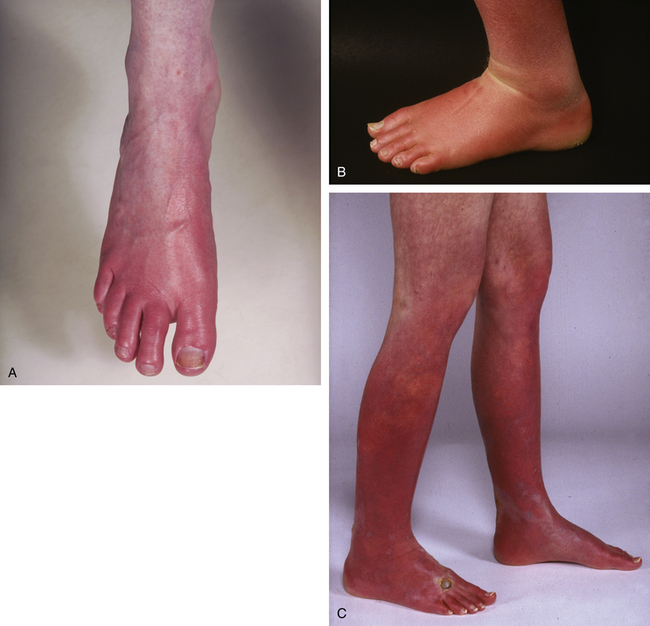Pure and Helpful Natural Remedies to Prevent Polycythemia Vera

Definition of Polycythemia Vera
Polycythemia Vera (PV) is a bone marrow infection that leads to an abnormal boost in the figure of blood cells. The red blood cells are largely affected.
Alternative Names
Polycythemia Rubra Vera
Primary polycythemia
Erythremia
Splenomegalic polycythemia
Myeloproliferative disorder
Erythrocytosis megalosplenica
Vaquez's disease
Osler's disease
Polycythemia with chronic cyanosis
Cryptogenic polycythemia
Causes
PV is a disease of the bone marrow. It basically causes numbers of red blood cells to be created. The figures for white blood cells and platelets might also be elevated than usual.
PV is a rare disease that happens more frequently in males than in females. It is not typically seen in individuals beneath age 40. The matter is frequently connected to a gene fault named JAK2V617F. The cause of this gene defect is unidentified. This gene defect is not an inborn disease.
Symptoms
With PV, there is a number of red blood cells in the body. This fallout is extremely thick blood, which can't run through small blood vessels usually, leading to symptoms such as:
Dizziness
Trouble breathing when lying down
Bluish skin
Excess bleeding, such as bleeding into the skin
Feeling tired all the time
Red skin coloring, especially of the face
Full feeling in the left upper abdomen (due to enlarged spleen)
Vision problems
Itchiness, especially after a warm bath
Headache
Shortness of breath
Symptoms of blood clots in veins near the skin surface (phlebitis)
Joint pain
Exams and Tests
Ringing in the ears (tinnitus)
The health care provider will perform a physical exam. You may also have the following tests:
Complete blood count with differential
Bone marrow biopsy
Genetic test for the JAK2V617F mutation
Comprehensive metabolic panel
Erythropoietin level
Red blood cell mass
Oxygen saturation of the blood
Vitamin B12 level
PV may also affect the results of the following tests
Leukocyte alkaline phosphatase
ESR
Serum uric acid
Lactate dehydrogenase (LDH)
Platelet aggregation test
Treatment
The purpose of treatment is to decrease the thickness of the blood and stop clotting problems and bleeding.
A technique named phlebotomy is used to reduce blood thickness. One unit of blood (about 1 pint, or 1/2 liter) is removed every week until the figure of red blood cells drops. The treatment is continued as required.

Natural Remedies for Polycythemia Vera
Herbs are normally a protected method to make stronger and tone the systems of the body. As with any treatment, you must work with your health care supplier to identify your problem before beginning treatment. You can use herbs as dried extracts (capsules, teas, or powders), glycerites (glycerine extracts), or tinctures (alcohol extracts). Unless otherwise indicated, make teas with 1 tsp. herb per cup of warm water. Steep covered 5 to 10 minutes for flowers or leaf, and 10 to 20 minutes for roots. Drink 2 to 4 cups for each day. You may use tinctures alone or in the mixture as noted.
If you are undergoing Herbal Treatment for Polycythemia Vera cancer, you should forever ask your physician before taking any supplements or herbs. No herbs have been studied particularly for Polycythemia Vera disorders, but the given below Home Remedies for Polycythemia Vera may help to get rid of it:
Indirubin (Indigofera tinctoria).
In the case of reports, indirubin showed definite outcomes in treating Polycythemia Vera. Though, no scientific studies have been done on applying indirubin for CML. Indirubin is from the indigo plant and is incorporated in a traditional Chinese herb method that has been used historically to treat Polycythemia Vera. Not much is recognized regarding the protection of indirubin. Ask your doctor before taking it and only use it under the direction of a well-informed prescriber.
Olive leaf (Olea Europaea).
For immune effects and anticancer. An individual with high blood pressure and diabetes must ask their physician before taking olive leaves. This herb is a very famous herbal ingredient used in Herbal Treatment for Polycythemia Vera and many other diseases.
Turmeric (Curcuma long).
For pain and inflammation. DO NOT use turmeric if you have gallbladder problems. Turmeric may increase the risk of bleeding, especially if you take blood thinners, such as warfarin (Coumadin), clopidogrel (Plavix), or aspirin.
Natural Remedy provided by Natural Herbs Clinic is the best combination of effective Natural Remedies for Polycythemia Vera without any risk and side effects. These natural herbal remedies are made by using the best quality herbs and strictly follow the principals of natural remedies. All these herbal remedies are 100 percent genuine and natural. These are making without any chemicals. These are safe and secure to apply without any side effects.
Related Articles
https://teletype.in/@naturalherbsclinic/natural-remedies-for-polycythemia-vera
https://herbsnaturalclinic.weebly.com/blog/natural-remedies-for-polycythemia-vera
https://naturalcureproducts.wordpress.com/2015/10/30/natural-remedies-for-polycythemia-vera/
